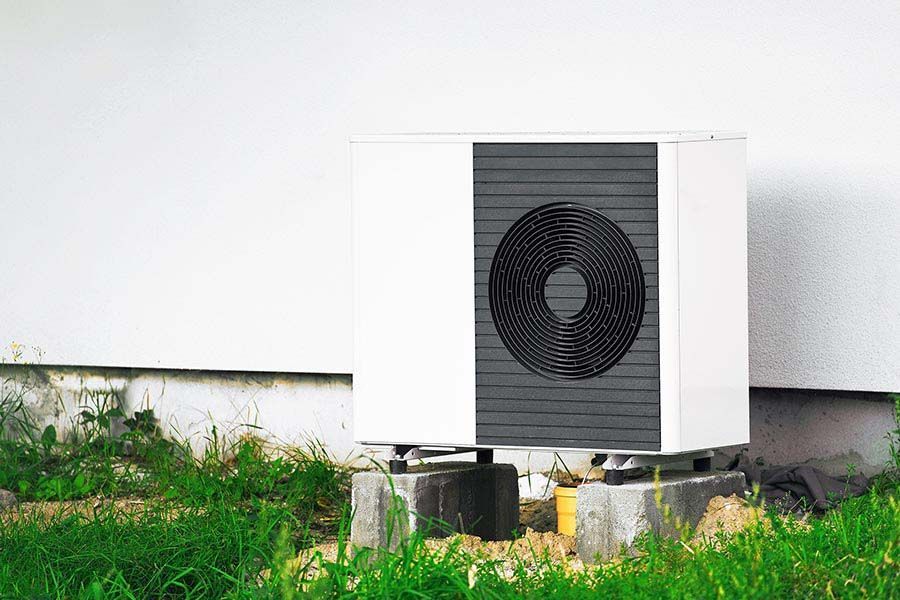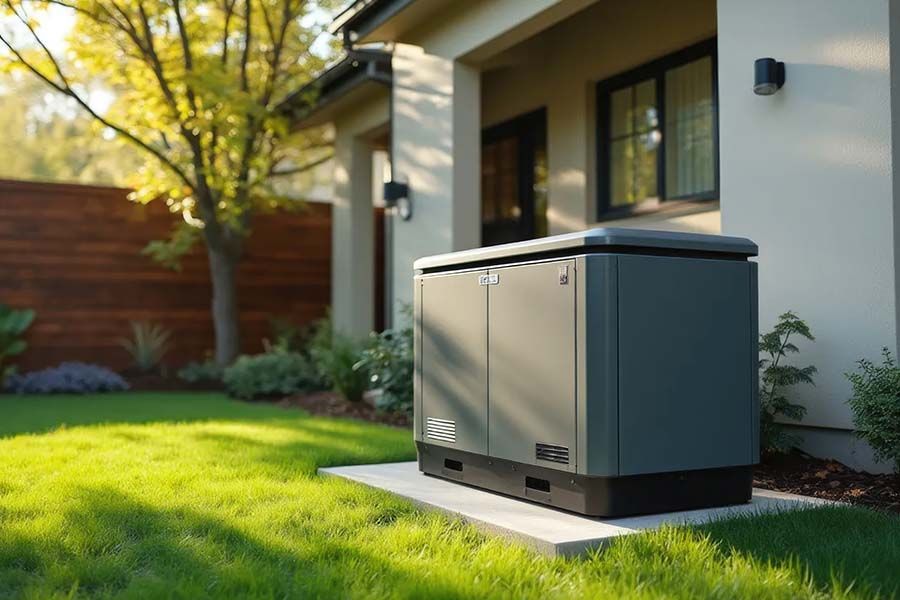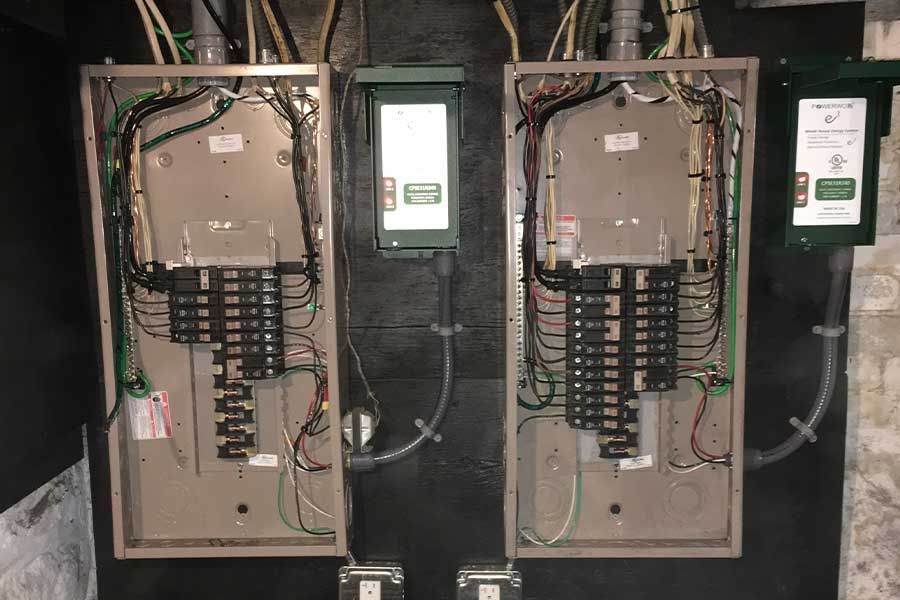10 Signs It’s Time for an AC Replacement
You might not realize it, but your air conditioning unit could be signaling its need for replacement. Have you noticed poor airflow or frequent breakdowns? There may be unusual noises, or your energy bills have skyrocketed. These are just a few indicators that your AC isn’t performing efficiently. Ignoring these signs might lead to bigger problems and higher costs. So, if you’re dealing with inconsistent temperatures, excessive dust, or foul odors, it could be time for an upgrade. Let’s investigate these signs and see if investing in a new system is time.
Poor Airflow
Noticing weak or inconsistent airflow indicates that your AC might need replacing. Several factors could be at play when your air conditioning system isn’t pushing out air as powerfully as it used to. One common issue is blocked vents. Over time, dust, debris, or even pests can clog these vents, greatly reducing the efficiency of your unit. You should inspect your vents regularly and ensure they’re clear of obstructions.
Another major culprit behind poor airflow is dirty filters. The filters in your AC are designed to trap dust and other particles, but when they get too dirty, they can restrict airflow into your home. This not only makes your AC work harder but also decreases the quality of the air you breathe. Changing your filters every few months can help, but if you notice that even clean filters don’t improve the airflow, your AC might be nearing the end of its lifespan.
Both blocked vents and dirty filters can contribute to poor airflow, but if these issues are ruled out and your AC still struggles, it’s likely time to contemplate a replacement.
Frequent Breakdowns
Experiencing frequent breakdowns with your AC is a clear indicator that it might be time for a replacement. When your air conditioner constantly malfunctions, it’s more than just an inconvenience; it’s a sign that the unit is nearing the end of its lifespan. Instead of relying on temporary fixes, you should consider the long-term benefits of investing in a new system. Increased repairs drain your wallet and point toward deeper issues within the unit.
Here are some signs that frequent breakdowns are pointing toward a necessary replacement:
- Escalating repair costs: Replacing the units is usually more cost-effective if repair bills increase.
- Inconsistent performance: Despite multiple fixes, if your AC still doesn’t cool your home evenly, it’s a problem.
- Age of the unit: Older models are more prone to frequent breakdowns and may not be worth the increased repairs.
- Energy inefficiency: Frequent repairs often go hand-in-hand with higher energy bills, indicating the unit is working harder than it should.
- Relying on temporary fixes: If you’re constantly applying band-aid solutions, it’s a clear sign that a replacement is overdue.
Unusual Noises
Do you hear strange noises from your AC that weren’t there before? If your air conditioner starts making unusual sounds, it could be a sign that it’s time for a replacement. Pay attention to rattling sounds and banging noises, as these are often indicators of serious issues within the unit.
Rattling sounds usually mean that some parts inside the AC have come loose. This could be screws, bolts, or even internal components that have shifted out of place. While a minor adjustment might fix the problem temporarily, frequent rattling can signify that the unit is aging and parts are wearing out. Ignoring these sounds can lead to more significant damage over time.
Banging noises are even more concerning. They often indicate a broken or disconnected part inside the compressor. This is a critical component of your AC system, and any damage here can drastically reduce the unit’s efficiency. If you hear banging noises, it’s important to have a professional inspect the system immediately. Sometimes, repairs can be costly and frequent enough to justify investing in a new unit instead.
High Energy Bills
Skyrocketing energy bills can indicate that your air conditioner is no longer running efficiently. When your AC system is old or malfunctioning, it requires more energy to achieve the same cooling effect, leading to rising costs. This inefficient performance impacts your wallet and can be a sign that it’s time to contemplate a replacement.
To identify if your AC is causing these high energy bills, look for the following signs:
- Frequent Repairs: If you’re constantly fixing your unit, it’s likely consuming more energy than it should.
- Increased Run Time: An AC that runs longer to cool your home works harder and uses more electricity.
- Outdated Technology: Older models lack the energy efficiency of modern units, resulting in higher utility bills.
- Poor Maintenance History: Lack of regular servicing can cause your AC to operate less efficiently, driving up costs.
- Seasonal Cost Spikes: Noticeable increases in your energy bills during summer or winter can signal that your AC isn’t performing efficiently.
Inconsistent Temperatures
If you notice that different areas of your home have varying temperatures, it might be a sign that your AC system is no longer functioning properly. Inconsistent temperatures can be frustrating, especially when one room feels like a sauna while another feels like an icebox. These temperature fluctuations indicate that your air conditioning system struggles to maintain a consistent climate throughout your home.
Room disparities often arise when your AC unit is failing. It may no longer distribute cool air evenly, leaving some areas under-cooled and others over-cooled. This issue could stem from several problems, such as ductwork leaks, a failing compressor, or an outdated system that’s unable to keep up with your home’s cooling demands.
To address these inconsistencies, start by checking your vents and filters for blockages. Make sure that furniture or other objects aren’t obstructing airflow. If the problem persists, it may be time to consult a professional. They can diagnose whether repairs are sufficient or necessary for a full replacement.
Ignoring these signs can lead to increased discomfort and higher energy bills. A new, efficient AC system can resolve temperature fluctuations and create a more comfortable living environment.
Old Age
Another key indicator that it’s time to replace your AC system is its age. If your air conditioner is over 10-15 years old, it’s likely not running as efficiently as it once did. Older units often have corroded components and suffer from reduced efficiency, which means they consume more energy and increase your utility bills.
Take into account the following signs related to your AC’s age:
- Frequent Repairs: If you call the repair technician more often, it’s a sign that your unit is wearing out.
- High Energy Bills: An aging AC system works harder, increasing electricity costs.
- Outdated Technology: Older units lack the advanced features and energy-saving options in newer models.
- Noise Levels: Due to worn-out or corroded components, aging systems often become noisier.
- Reduced Cooling: An old AC might struggle to cool your home effectively, leaving some rooms warmer.
As your air conditioner ages, its reduced efficiency can increase costs and discomfort. Regular maintenance can only prolong its life. If your unit is showing these signs, it’s time to consider a replacement for improved performance and energy savings.
Excessive Dust
Noticing an unusual amount of dust accumulating in your home can indicate that your AC system isn’t filtering the air properly, signaling it’s time for a replacement. When your AC unit’s filters are dirty, they can’t efficiently trap dust and other particles. Consequently, more dust circulates throughout your home, settling on furniture, floors, and other surfaces. This creates a cleaning hassle and can exacerbate allergies and respiratory issues for you and your family.
Blocked vents can also contribute to excessive dust build-up. When vents are blocked, air can’t flow freely through your system, causing it to work harder and less efficiently. This inefficiency can lead to more dust being pushed into your living spaces. Regularly inspecting and cleaning your vents can help, but if the problem persists, it might be time to contemplate replacing your AC unit.
An outdated or malfunctioning AC system often struggles to maintain good indoor air quality. If you’ve noticed an increase in dust despite regular maintenance, it strongly indicates that your AC isn’t performing as it should. Substituting your old system with a new, more efficient one can greatly enhance your home’s air quality and overall comfort.
Moisture Problems
Experiencing excessive moisture or humidity in your home can indicate that your AC system is no longer functioning properly. When your air conditioner isn’t adequately removing moisture, it can lead to several issues that impact your comfort and your home’s structural integrity. One of the most obvious signs is water leakage around the unit, which can cause damage to floors and walls.
Here are some indicators that moisture problems may require an AC replacement:
- Increased humidity levels: If your home feels more humid, your AC might not dehumidify effectively.
- Water leakage: Puddles or damp spots around your AC unit can indicate a failing system.
- Mold growth: Excess moisture creates an ideal environment for mold, which can pose health risks.
- Condensation on windows: Noticeable condensation can indicate that your AC isn’t removing enough moisture.
- Stale or damp air: If the air in your home feels damp or smells musty, your AC may not be working properly.
Addressing these moisture problems promptly can help prevent more serious issues, including structural damage and health risks from mold growth.
Foul Odors
If you notice a persistent foul odor coming from your AC unit, it may be a sign that it’s time for a replacement. These unpleasant smells often indicate serious underlying issues like mold growth or bacterial contamination. When mold grows inside your AC unit, it can spread spores through the air, posing health risks to you and your family. Similarly, bacterial contamination can lead to musty or rotten smells, signaling the unit is no longer functioning properly.
First, try to identify the type of odor. A musty smell indicates mold growth, while a sour or rotten odor could indicate bacterial contamination. Regardless of the specific smell, foul odors suggest that your AC system might be compromised. You can attempt cleaning or professional maintenance, but these are usually short-term fixes.
If the odors persist despite cleaning, replacing your AC unit may be more cost-effective and safer. Using a contaminated system can lead to health problems and decreased air quality. Investing in a new unit ensures you won’t have to deal with these unpleasant and potentially hazardous smells again.
Outdated Technology
Besides addressing foul odors, assessing whether your AC unit relies on outdated technology is important. If your air conditioner is over a decade old, it likely has obsolete components that can’t keep up with current efficiency standards. Newer models are designed to be more energy-efficient, saving you money on utility bills and reducing your carbon footprint.
Consider these signs that your AC might be outdated:
- Frequent Repairs: Your unit might be past its prime if you’re constantly calling a technician.
- High Energy Bills: Older units often consume more electricity, increasing costs.
- Inconsistent Temperatures: Struggling to maintain a consistent temperature can indicate inefficiency.
- Use of R-22 Freon: This refrigerant is being phased out because of environmental concerns.
- Lack of Smart Features: Modern systems offer programmable thermostats and remote control capabilities.
Upgrading to a newer model with efficiency improvements can significantly improve your comfort and expenses. New units are equipped with advanced features that improve performance and reliability. Don’t wait for your old AC to fail. Proactively replacing it can ensure a smoother changeover and better cooling performance.
Conclusion
If you notice these signs, it's probably time to replace your AC unit. Did you know that upgrading to a new, energy-efficient model can save you up to 40% on your energy bills? Don’t ignore these indicators; acting now can prevent more costly issues. Consult a professional to assess your system and determine the best action. Investing in a new AC can improve your comfort and reduce expenses.
Frequently Asked Questions
You might also like







